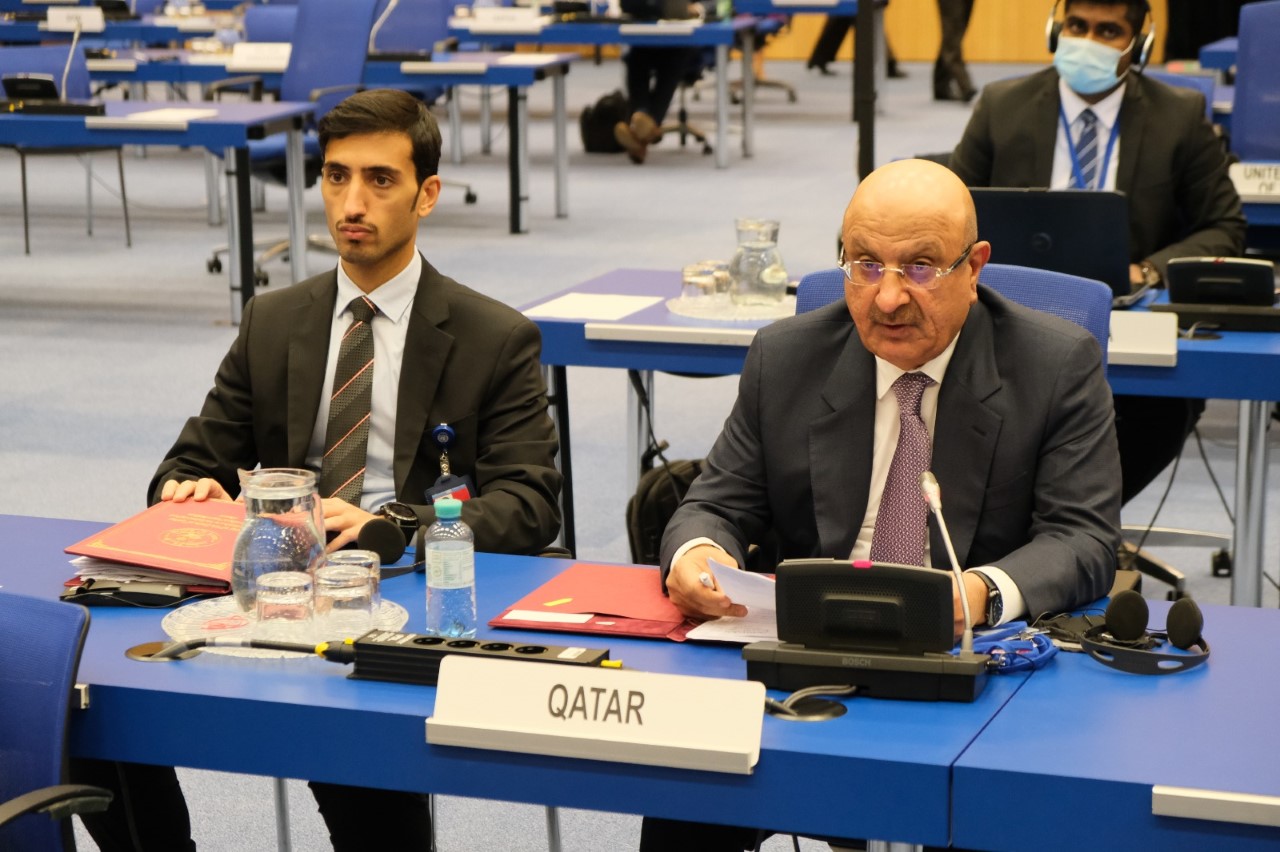Qatar Calls for Building International Consensus on Comprehensive Agreement on Combating Use of ICT for Criminal Purposes

Doha - Information Office - October 13
The State of Qatar called for building an international consensus on a comprehensive international agreement on combating the use of information and communication technologies for criminal purposes, that integrates into its framework and does not exclude any of the existing international and regional instruments.
Addressing the 10th Conference of the Parties to the United Nations Convention against Transnational Organized Crime (COP10), currently in session in Vienna, HE Maj. Gen. Dr. Abdullah Yousef Al Mal, the Advisor to HE the Minister of Interior and Chairman of the Follow-up Committee on the Implementation of the Doha Declaration Global Program, underlined the need to confront the safe havens of illicit financial flows, the crime-based economy, corruption money laundering and drug trafficking, as well as the need to promote measures that aimed at uncovering the proceeds of crime and their safe havens.
HE called for a greater international attention to the new crimes, in particular cybercrime which poses an increasing risk for everyone, noting that the State of Qatar was among the victims of cybercrime and the use of cyberspace to hack its news and sports sites and violate the intellectual property rights of Qatari companies.
On the twentieth anniversary of the Convention against Transnational Organized Crime, HE Maj. Gen. Dr. Abdullah Al Mal said that this convention has become a pioneering model and an important tool in the international pluralism system and in the rule of law in international relations, and in strengthening multilateral institutions and the interdependence between sustainable development and the rule of law, contributing to pushing forward towards peace and stability in the world, and confronting the tendencies of unilateralism, closure and adventurous policies that violate the international law.
He added that the State of Qatar is proud of its role in supporting the convention and implementing its provisions at the national and international levels, as well as its hosting of the Thirteenth Congress on Crime Prevention and Criminal Justice in 2015 and the issuance of its historic declaration, the Doha Declaration, which was a milestone in the joint effort. Then, the State of Qatar added this effort by funding the Doha Declaration Global Program, the largest program ever offered by one country in the history of the United Nations Office on Drugs and Crime (UNODC). The program has become a model for the support provided by states to the UNODC.
HE Maj. Gen. Dr. Abdullah Yousef Al Mal reviewed the achievements accomplished by the Doha Declaration Global Program, and said that more than (52) thousand people from (186) countries benefited from direct capacity building activities. The program reached out to (2) million people from more than (190) countries, and produced more than (200) educational materials, and reached out to (1,2) million children and students. In the Judicial Integrity pillar, the program trained (1600) judges, while (50) jurisdictions from different countries of the world became experimental sites for training tools on judicial practices and ethics. In addition, the program supported (11) countries in the field of prison infrastructure and the rehabilitation of prisoners. Within the framework of the youth crime prevention pillar, the program trained (13) thousand young people.
HE underlined that the Doha Declaration Global Program continues to provide more for the sustainable development and the rule of law in international relations.

